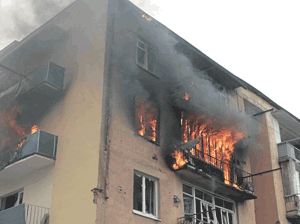 Gela Mtivlishvili
Gela Mtivlishvili
From September 8-10, the UN International Court (Hague Tribune) will have an open discussion on the submitted suit of Georgia against the Russian Federation. Officially Rosalyn Higgins, the chairperson of the International Court has already confirmed back to Georgia as to the scheduling of the hearing. Georgia requests the international court to take all measures to prevent Russia from the continued discrimination of Georgian civilians that are under occupation within Georgian territory and to force Russia to stop its policy of ethnic cleansing, (and even killing of peaceful civilians), looting of towns and villages in Georgia, support of separatism and suppression of Georgian residents of Gali district and forcing ethnic Georgians in the entire conflict zone to make them obtain Russian citizenship. It is now possible that The Hague Court will follow up and satisfy the request of Georgia to consider initial activities in assisting Georgia at the very first hearing, which means the court will intervene in preventing Russia from acting against peace, human lives and health.
Georgia submitted its case to The Hague Court on August 12 based on the report of the international organization Human Rights Watch. The human rights organization states that Russia has implemented a policy of ethnic cleansing of Georgians on their own territory. Holly Cartner, director of the Europe and Central Asia Department of the HRW stated that in acting so Russia breaches the rights that are protected under international humanitarian law.
The Human Rights Watch underlines that on August 12 a bomb was dropped just in front of the city administration building in the center of the city where tens of people were gathered to obtain humanitarian food assistance. “Those who survived reported that 8 people were killed in total, and this included a Dutch journalist. Initially Russian soldiers denied having carried out any military operations in Gori but on August 13 Sergei Lavrov, Russian Minister of Foreign Affairs, confirmed facts otherwise. On 9-12 August several air-attacks occurred on the city and it could be carried out only by Russian aircraft,” reports by international organizations and the media.
Human Rights Watch discovered several residential houses were destroyed by cluster bombs that are prohibited by international society, and these have been used by both sides. The basements of the houses were also bombed though peaceful civilians were sheltering there. The HRW reports based on the information delivered by Tskhinvali hospital that on 6-12 August and total of 273 wounded and 44 dead people were delivered at their hospital.
The human rights organization focuses on the facts of looting and burning of the residential houses in Georgian villages. An officer from Ossetian Counterintelligence Department reported to the organization that Ossetians had burned the houses of Georgians.
“We burnt these houses. We need to be sure that Georgians would never be able to come back here,” said the officer who also added that Ossetians killed a Georgian man just for a simple doubt that he had done something wrong.
Human Rights European Court will also discuss the cases of killing and wounding innocent people and devastation of civilian properties during military operations in Georgia. Nika Gvaramia, Georgian Justice Minister, stated that Strasbourg Court has involved in the conflict for the first time and passed initial decision so-called “temporary activities” and suggested Russia to avoid all kind activities that threatens human lives and health.
After Georgia submitted suit to international court in Hague Russian Foreign Ministry spread information that Russian citizens were also sending suits to the international criminal court against Georgian government.
The Ministry reported that suitors demand to impose corresponding charges on Georgian government because of human casualties in South Ossetia.
What can be the reaction of International Court of Hague on the suit of Georgia? Is Russian federation responsible to implement the decisions of international court and if Russia refuses to obey the imposed charges that will be corresponding measures against the disobedient country? We asked these questions to Lia Mukhashavria, Attorney of the International Law.
“It is very important that Georgian state appealed to Hague Court and requested to investigate the facts of ethnic cleansing, it continued and active support of separatism and other violations in Georgia. In addition, our government has now requested the court to declare Russia’s recognition of South Ossetian and Abkhazian separatist regimes independence as being illegal. The fact is crime according to international law and by recognition these separatist republics, Russia has turned a blind eye to ethnic cleansing that might be used as a proof of liability under international law.
-Mrs. Lia, how obliged will Russia be to implement the directions of Hague Court?
- Hague International Court was established in 1993 based on Rome International Agreement that aims to investigate crimes committed against humanity by collective effort. In addition the court also aims to impose charges on offenders. Both Georgia and Russia, among many European states, have signed this agreement and all member states should support investigation and those found guilty must be brought to court.
-If Russia does not implement the assumed responsibilities like it has already done the same about the decisions passed by European Human Rights Court, what will be the reaction of Hague Court?
-The main principle of Rome International Agreement is to implement the decision of the court. It should be noted that at this stage of case discussion, a court’s opinion carries preventive measures. In addition, it is also a possibility that Russia can bring its own legal action. The Hague Court has the right to implement its decision with the support of its own armed special units, Interpol and international anti-crime organizations.



